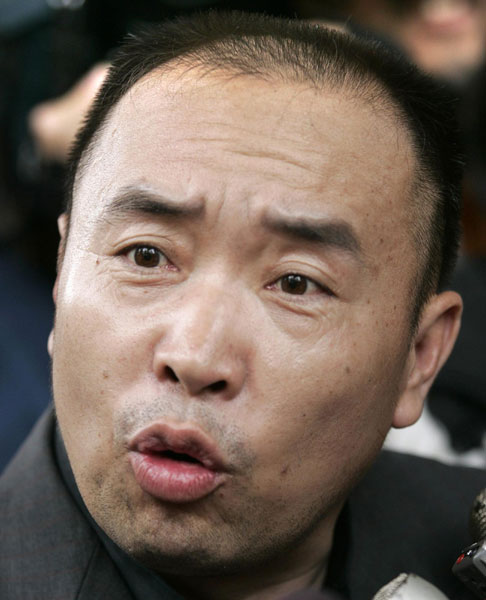Fugitive Lai deported to China
Updated: 2011-07-23 17:55
(Xinhua)
|
|||||||||||
|
 |
|
Lai Changxing talks to reporters outside his residence in Vancouver, British Columbia in this June 1, 2006 file photo. [Photo/Agencies] |
BEIJING -?Alleged smuggling kingpin Lai Changxing was repatriated back to China on Saturday afternoon 12 years after fleeing to Canada, according to the Ministry of Public Security.
Chinese police announced his arrest and read him his rights, including hiring lawyers to defend himself, at the Beijing Capital International Airport after he was transferred by the Canadian side, the ministry said in a statement on Saturday.
Lai, 53, is the chief suspect in a multibillion-dollar smuggling operation that dates back to the 1990s in the southeastern city of Xiamen.
"Lai's repatriation once again shows that no matter where a criminal suspect flees, he or she cannot evade legal sanctions in the end," the statement said.
His repatriation is also significant for the promotion of Sino-Canadian law enforcement cooperation, it said.
| ||||
The Canadian government also made active efforts in Lai's extradition, it said.
Thirty-one criminal suspects believed to be connected with Lai's smuggling operation have been sent back to China from overseas since April 2001, figures from the country's General Administration of Customs show.
China's anti-smuggling agency is conducting a further investigation into Lai's case. The case will be referred to judicial organs after the investigation is concluded, according to the customs administration.
The alleged smuggling largely took place between 1996 and 1999 and involved "an enormous amount of money," with Lai and his accomplices smuggling oil products, vehicles and cigarettes, according to the ministry.
The smuggling operation "seriously disrupted China's economic order and created huge economic losses for the nation," the ministry said.
Relevant authorities set up a special group to investigate Lai's case in April 1999 in accordance with the deployment of the Central Committee of the Communist Party of China (CPC) and the State Council, or China's cabinet.
Lai fled to Canada via Hong Kong in August 1999 and tried to obtain refugee status in order to evade the law.
Canadian authorities, however, ruled that Lai should not be considered a refugee and upheld his deportation, paving the way for his return to China.